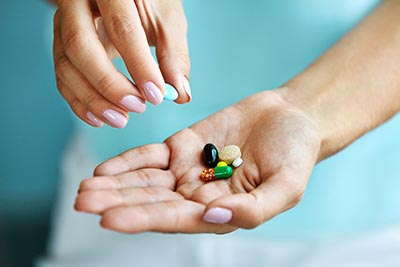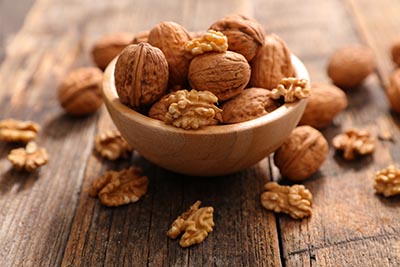Quick Studies: A snapshot of the latest research on diet, exercise, and more

A Diet to Keep Arteries Young

A Mediterranean diet may lower blood pressure and help keep arteries from stiffening as you age.
Researchers randomly assigned roughly 1,130 older people in five European cities to consume their usual diet or to eat a “Mediterranean-style” diet that was higher in vegetables, fruit, nuts, beans, fish, whole grains, low-fat dairy, and olive oil—and lower in salt and added sugars—than their usual diet.
After one year, systolic blood pressure was 5½ points lower in the people assigned to the Mediterranean diet than in those told to eat their usual diet. And among the 225 participants who were tested, those assigned to the Mediterranean diet had a decrease in one measure of artery stiffness.
What to do: Whether you call it a Mediterranean or a DASH diet, eating beans, nuts, fish, whole grains, low-fat dairy, oil (olive or others), and plenty of vegetables and fruit may help protect your blood vessels.
Hypertension 2019. doi:10.1161/HYPERTENSIONAHA.118.12259.
Vitamins for the Brain?

Thinking about popping a vitamin to help your memory or focus? Save your cash.
Scientists reviewed 28 randomized clinical trials that tested vitamins or minerals, including B vitamins, antioxidants (C, E, and beta-carotene), and vitamin D, on some 83,000 people. They found “no good evidence” that the supplements can preserve memory or prevent dementia.
What to do: Ignore claims that vitamins can boost your brain health.
Cochrane Database Syst. Rev. 2018. doi:10.1002/14651858.CD011906.pub2.
No Happiness Boost

“Be up for life,” say ads for Boost High Protein drink, which is made by Nestlé. “What I do count on is staying happy and healthy,” declares the vibrant older woman.
But an experimental Boost-like supplement didn’t boost mood or curb symptoms of depression in a study partly funded by Nestlé.
Researchers randomly assigned 149 older people with low vitamin D levels to consume a daily 30-calorie placebo drink or a 150-calorie drink with 20 grams of protein, 800 IU of vitamin D, and a mix of other vitamins and minerals. All the volunteers also participated in an exercise program two to three times a week.
After six months, both groups scored better on scales of depression and emotional well-being than they did when they entered the study, but the supplement drinkers didn’t improve more than the placebo drinkers.
What to do: Stay active...and ignore ads suggesting that you need Boost, Ensure, or similar drinks to stay happy and healthy.
Nuts!

Nuts may boost sperm count, which dropped by half worldwide from 1973 to 2011.
Researchers randomly assigned 98 healthy men aged 18 to 35 with no fertility problems to eat their usual daily diets with or without about 2 oz. (roughly ½ cup) of nuts—1 oz. of walnuts, ½ oz. of almonds, and ½ oz. of hazelnuts. (The study was partly funded by the nut industry’s trade association.)
After 14 weeks, the nut eaters had greater improvements in sperm count, motility, vitality, morphology (structure), and DNA fragmentation than the men in the no-nuts group.
What to do: It’s far too early to know if nuts boost fertility. But it’s worth eating a serving a day to protect your heart.
Am. J. Clin. Nutr. 108: 953, 2018.
Photos: stock.adobe.com: Elenathewise (beans), puhha (pills), M.studio (nuts).

